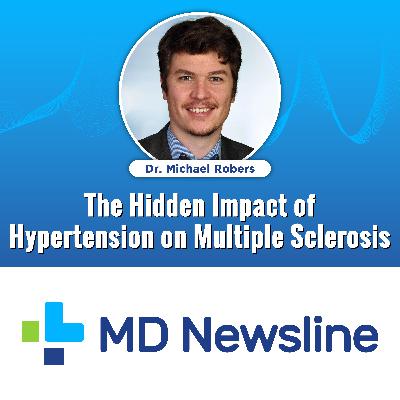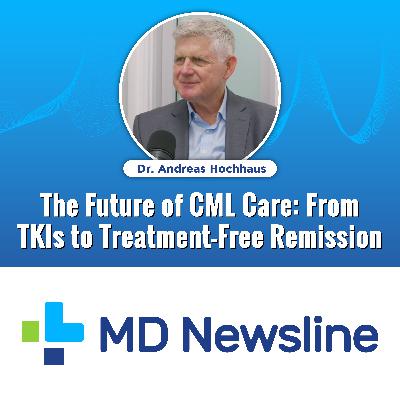The Hidden Impact of Hypertension on Multiple Sclerosis
Description
In this episode of MD Newsline, Dr. Michael Robers, a neurologist and multiple sclerosis (MS) specialist at Barrow Neurological Institute in Phoenix, Arizona, shares groundbreaking research on the intersection of hypertension and MS. He highlights the high prevalence of undiagnosed hypertension among MS patients and its association with worse physical disability. Dr. Robers also explores systemic care gaps and advocates for a more integrated, whole-person approach to MS care—emphasizing the role of MS specialists in detecting comorbidities early.
Episode Highlights:
Understanding MS Health Disparities
Dr. Robers discusses how Black, Hispanic, and Indigenous Americans face worse MS outcomes compared to white Americans. Contributing factors include underdiagnosis, delayed care, and insufficient screening, particularly for comorbid conditions like hypertension.
The Hidden Impact of Hypertension on MS Disability
His research reveals that MS patients with uncontrolled hypertension are over twice as likely to require ambulatory aids. Notably, 27% of patients met hypertension criteria via vital signs, while only 7% had formal diagnoses—highlighting a major care gap.
Why Awareness Matters
Women, younger patients, and those with borderline high blood pressure are more likely to be unaware of their hypertension status. Dr. Robers urges MS specialists to ask simple screening questions and refer patients to primary care, even if they don't manage blood pressure themselves.
Collaborating Across Specialties
Dr. Robers discusses the growing need for inter-specialty collaboration in chronic disease care, emphasizing how subspecialists like neurologists can identify issues traditionally addressed in primary care.
The Path Forward in MS Care
He calls for a broader focus on long-term wellness for MS patients—including screening for common but impactful comorbidities like hypertension. Future research may reveal whether proactive control of blood pressure can reduce long-term disability in MS.
Key Takeaway:
Undiagnosed hypertension is a modifiable risk factor in MS care. MS providers can help bridge a major care gap by screening for high blood pressure—especially in young, female, and underserved patients—to prevent worsening disability and promote holistic patient health.
Resources Link:
Website: https://mdnewsline.com/
Newsletter: https://mdnewsline.com/subscribe/
Connect with Dr. Michael Robers: Here
























